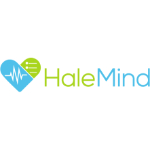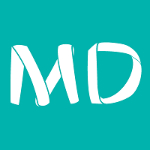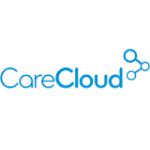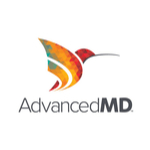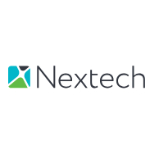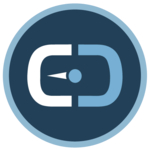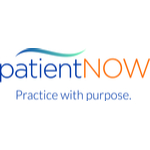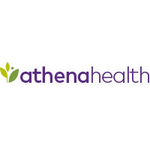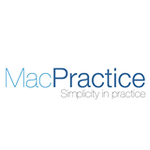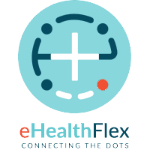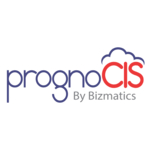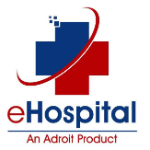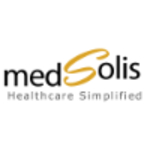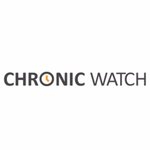TechnologyCounter provides genuine, unbiased real user reviews to help buyers make informed decisions. We may earn a referral fee when you purchase through our links, at no extra cost to you.
List of 15 Best Patient Portal Software
Showing 1 - 15 of 21 productsHalemind, the innovative software designed to enhance your mind and optimize your performance. With its advanced features and user-friendly interface, Halemind is a tool for boosting your cognitive abilities and achieving your goals. Say hello to a s...Read Halemind Reviews
NueMD is a top-of-the-line medical practice management software designed to simplify administrative tasks, streamline workflows, and improve overall efficiency for healthcare providers. It provides a user-friendly interface, customizable features, to...Read NueMD Reviews
CareCloud is a cloud-based healthcare software designed to streamline and simplify administrative tasks, enhance patient care, and improve overall efficiency for medical practices. With its user-friendly interface and innovative features, CareCloud i...Read CareCloud Reviews
Practice Fusion is a user-friendly and innovative electronic health record (EHR) software that is designed to streamline the healthcare experience for both patients and practitioners. With its seamless interface and top-notch features, Practice Fusio...Read Practice Fusion Reviews
AdvancedMD is a intuitive and innovative software solution tailored for healthcare professionals. With its user-friendly interface features, AdvancedMD streamlines administrative tasks, enhances patient care, and improves overall practice efficiency...Read AdvancedMD Reviews
Nextech is a software revolutionizing the way businesses operate. With its advanced technology and innovative features, Nextech offers companies a seamless is a solution for all their operational needs. From managing projects to tracking inventory, N...Read Nextech Reviews
SuiteDash is a business management and collaboration software that has revolutionized the way companies manage their operations. With its user-friendly interface and robust features, SuiteDash has become a leading choice for businesses looking to str...Read SuiteDash Reviews
For over 15 years, PatientNOW has been revolutionizing the way healthcare businesses manage their operations and patient interactions. This innovative software offers a streamlined solution for scheduling, EHR management, marketing, and more, all in...Read PatientNOW Reviews
Athenahealth is the game-changing software that is transforming the healthcare industry. With its innovative tools and superior technology, athenahealth is streamlining and improving the way medical professionals provide care to their patients. Disco...Read athenahealth Reviews
MacPractice is a and versatile practice management software designed specifically for healthcare professionals. With its user-friendly interface and customizable features, it streamlines administrative tasks and improves overall efficiency for medica...Read MacPractice Reviews
eHealthFlex is a software designed to revolutionize the field of healthcare. With its advanced technology and user-friendly interface, eHealthFlex brings a new level of efficiency and convenience to medical professionals and patients alike. Say goodb...Read eHealthFlex Reviews
PrognoCIS EMR PrognoCIS EMR is a electronic medical records software designed to streamline and optimize healthcare practices. With its user-friendly interface features, PrognoCIS EMR provides healthcare professionals with a comprehensive is a soluti...Read PrognoCIS EMR Reviews
eHospital is a digital solution for all your healthcare needs. Designed to simplify and streamline the medical process, eHospital provides an all-in-one platform for patients and medical professionals to connect and manage their healthcare services...Read eHospital Reviews
Medsolis Communicator, a revolutionary healthcare communication software designed to improve patient care and streamline communication among healthcare professionals. With its advanced features and user-friendly interface, this innovative tool is cha...Read Medsolis Communicator Reviews
Chronic Watch is a software designed to help individuals manage chronic health conditions with ease. It offers a variety of tools and resources to track symptoms, medications, and appointments, along with personalized insights and recommendations. Sa...Read Chronic Watch Reviews
- What Is Patient Portal Software?
- Top Reasons Why Businesses Need Patient Portal Software?
- What Are the Top Key Features of Patient Portal Software?
- What Are the Top Benefits of Patient Portal Software?
- What Are the Steps to Choose the Right Patient Portal Software?
- What Are the Types of Patient Portal Software for Different Industries?
- What Are the Technology Trends for Best Patient Portal Software?
- What Are the Deployment Options for Patient Portal Software?
What Is Patient Portal Software?
Patient portal software refers to a type of software that enables patients to engage in communication with their healthcare professionals and maintain a secure record of their medical information.
The best patient portal software may be accessible via both computers and mobile devices, providing patients with the ability to schedule appointments, obtain prescription refills, access lab results, and communicate with their healthcare professionals using messaging features.
Top patient portal software facilitates seamless communication between patients and healthcare providers, enabling patients to conveniently engage with their healthcare professionals and get pertinent information pertaining to their healthcare requirements. The program facilitates and enhances patient involvement while also enhancing transparency.
By granting patients the opportunity to access their medical information, they are empowered to review their clinical history and subsequently make more educated decisions pertaining to their healthcare.
Additionally, telemedicine facilitates enhanced contact between patients and physicians, as it reduces the need for in-person doctor appointments and enables the exchange of more precise and comprehensive information.
The utilization of patient portal software has been shown to effectively mitigate the burden of paperwork and enhance the efficiency of healthcare practitioners in the management and storage of patient information. Patients can receive automated reminders when their appointment is nearing or when a payment is required.
The online patient portal software facilitates the secure storing of patient information while incorporating essential privacy protections, including encryption and authentication mechanisms. In general, best patient portal software is an exceedingly valuable tool that has fundamentally transformed the manner in which healthcare organizations engage with their patients.
The utilization of online patient portal software technology facilitates enhanced communication and facilitates the retrieval of crucial medical data, all the while upholding the principles of privacy and security.
Top Reasons Why Businesses Need Patient Portal Software?
1. Enhanced data accuracy in client medical records, hence ensuring precision in care decisions and treatments.
2. The implementation of improved accessibility and convenience measures enables patients to easily access their health records, schedule appointments, and request prescription refills.
3. One of the benefits of implementing a streamlined administrative top-patient portal software is the reduction in costs associated with paperwork and phone interactions with patients.
4. One notable benefit is the enhanced adherence of patients to their care plans and prescription regimens, leading to improved health outcomes.
5. Enhanced patient communication facilitates effective management of client interactions for medical professionals and healthcare organizations.
6. One potential benefit is the streamlining of the billing process, resulting in a more efficient and simplified procedure for collecting payments. Furthermore, the implementation of real-time monitoring capabilities allows for immediate and continuous oversight of payment transactions.
7. Enhanced customer satisfaction arises from the implementation of enhanced accessibility to medical records, with the utilization of patient-oriented applications such as appointment scheduling and medication refills.
8. The implementation of a streamlined system for accessing patient data and analytics enables healthcare providers to efficiently monitor and address patient healthcare requirements.
9. One potential improvement is the implementation of enhanced security measures and privacy controls to safeguard patient health information, thereby reinforcing compliance with the Health Insurance Portability and Accountability Act (HIPAA).
10. One significant advantage is the convenient availability of laboratory and imaging results, facilitating the prompt and precise interpretation of medical findings by healthcare professionals.
11. One of the benefits of using automated systems in healthcare settings is the utilization of automated emails, notifications, and appointment reminders, which effectively minimize the necessity for manual interactions with patients.
12. One potential benefit of using a digital system is the potential reduction in both phone calls and paperwork, which could lead to a decrease in administrative expenditures.
13. Enhanced operational effectiveness with the implementation of automated systems for appointment scheduling and reminders.
14. One of the features of the system is the inclusion of direct messaging capabilities, which allow healthcare professionals to engage in direct communication with patients regarding test results and other healthcare-related matters.
15. The enhancement of patient involvement and loyalty as a consequence of an enhanced healthcare experience.
What Are the Top Key Features of Patient Portal Software?
The top key features of patient portal software include:
1. Electronic Health Records (EHR) and Medical Records Management: The utilization of patient portal software facilitates the secure storage, management, and retrieval of electronic health records (EHRs) about patients.
These records encompass essential medical information, including but not limited to vital signs, prescribed prescriptions, diagnoses, laboratory findings, and other pertinent data.
2. Appointment Scheduling and Reminders: The utilization of online patient portal software facilitates patients in efficiently scheduling and overseeing medical visits, alongside receiving comprehensive and punctual notifications about forthcoming appointments.
3. Secure Online Messaging: Patients can engage in secure communication with their healthcare professionals, facilitating the exchange of requested documents and enabling the opportunity to seek clarification on health-related matters.
4. Online Billing and Payment: Patient portals offer patients the convenience of accessing and settling medical bills and fees through online platforms.
5. Refill Prescriptions Online: Patients have the option to conveniently and expeditiously seek prescription refills through online platforms, hence obviating the necessity of physically visiting their healthcare provider's clinic for this purpose.
6. Health Education Resources: This service facilitates convenient accessibility for patients to pertinent health-related educational resources.
7. Access to Lab Results: Patients are provided with convenient online access to their laboratory findings, which includes the ability to store and share them electronically, thereby reducing the need for physical documentation.
8. Secure Online Forms: Patients can conveniently and securely submit comprehensive online forms, including but not limited to new patient information, follow-up notes, and patient histories.
9. Notification Alerts: The system ensures that patients are continuously informed through real-time notifications regarding significant health-related events, alterations, and updates.
10. Secure Access: Patients can securely retrieve their medical information, papers, prescriptions, and other related materials from any device, at any given time and location.
What Are the Top Benefits of Patient Portal Software?
1. Improved Quality of Care: Patient portals facilitate enhanced monitoring of patient participation, care quality, and long-term outcomes by healthcare professionals.
2. Increased Accessibility: Patients can conveniently access their healthcare information at any time and from any device, thereby enhancing their access to care.
3. Enhanced Communication: Healthcare providers can engage in effective communication with their patients through encrypted messaging, video conferencing, and email, thereby mitigating any potential delays in the delivery of care.
4. More Efficient Workflows: Patient portals optimize and enhance clinical workflows by facilitating many tasks, including arranging appointments, documenting medical information, and processing prescription refills. This efficient utilization of technology allows healthcare personnel to allocate more time toward delivering quality patient care.
5. Improved Engagement: The likelihood of patients actively participating in their care plan is increased when they are provided with access to their medical information and can readily communicate with their healthcare team.
6. Reduced Costs: Patient portals have the potential to alleviate the financial burden of care and reduce administrative expenses by enhancing patients' ability to conveniently access and manage their healthcare information.
7. Improved Data Collection: The utilization of patient portal software enables healthcare professionals to gather a greater amount of data, including health history and vital signs, so enhancing the ability to monitor and evaluate health outcomes.
8. Easier Coordination of Care: Patient portals offer a secure medium via which healthcare practitioners can exchange information, facilitating enhanced collaboration and streamlined coordination of patient care.
What Are the Steps to Choose the Right Patient Portal Software?
1. Identify Your Goals: Before choosing a patient portal software, it is imperative to elucidate the specific issue that necessitates the implementation of the program. It is vital to possess a comprehensive comprehension of the specific functionalities and purposes that one depends on the patient portal to fulfill.
2. Conduct a Needs Assessment: Evaluate and contrast the existing patient portal systems in use with the most optimal alternatives currently available on the market. Additionally, it is advisable to assess the functionalities offered in other modes, such as mobile or desktop, and evaluate their usefulness.
Furthermore, conducting a comprehensive cost analysis of the many accessible solutions would be beneficial.
3. Check Security Procedures: The verification of the steps implemented by the patient portal to safeguard patient data and maintain compliance with the Health Insurance Portability and Accountability Act (HIPAA) is of utmost significance.
4. Test Usability: Choose a patient portal that possesses a user-friendly interface and can be easily configured and utilized. It is imperative to ensure that the user interface exhibits a high degree of intuitiveness, while concurrently streamlining the sign-up procedure to be straightforward and uncomplicated.
Additionally, the best patient portal software is important to ascertain whether the system offers comprehensive Online Help resources to assist users in resolving any inquiries they may have.
5. Look for Integration Options: Many healthcare companies include various apps and clinical systems in their operations. The patient portal ought to possess compatibility with prevailing software and devices, thereby providing opportunities for interoperability.
6. Consider Cost & Maintenance: This study aims to analyze the expenses related to the creation and maintenance of patient portal software, as well as to conduct a comparative cost analysis among various vendors. Additionally, it is vital to examine the procedure involved in system updating.
7. Evaluate the Vendor: This study aims to conduct a comparative analysis of several vendors, focusing on the evaluation of their customer service, reliability, and technical assistance.
Select a vendor who possesses expertise in patient portals and demonstrates a willingness to provide comprehensive support to the company to optimize the utilization of existing technological advancements.
What Are the Types of Patient Portal Software for Different Industries?
Various businesses have access to different types of patient portal software, which cater to the specific demands and objectives of individual practices, hospitals, or care organizations. The main categories of patient portal software are as follows.
1. Connected EMR/EHR: This particular patient portal software facilitates access to a patient's medical records, health information, and other relevant data over a secure digital platform, accessible to both professionals and patients.
The system encompasses several functionalities, such as the registration of patients, the scheduling of appointments, the provision of encrypted messaging, and additional features.
2. Scheduling and Billing: The best patient portal software in question has been specifically developed to enhance the efficiency of patient booking and billing procedures. The system encompasses several functionalities, including the ability to schedule appointments, facilitate online registration, process payments, and offer other services.
3. Patient Engagement and Education: This particular variant of top patient portal software facilitates the active involvement of clinicians in interacting with their patients, hence enhancing the quality of healthcare provision.
The system encompasses several functionalities, such as tailored educational resources for individual patients, a secure messaging platform, timely reminders for scheduled appointments, and additional capabilities.
4. Population Health Management: The utilization of top patient portal software enables healthcare companies to gather and analyze data to enhance patient outcomes. The aforementioned characteristics encompass predictive analytics, patient segmentation, risk assessment, and further functionalities.
What Are the Technology Trends for Best Patient Portal Software?
Patient portals are emerging as a progressively significant instrument for hospitals, clinics, and other healthcare establishments. The patient portals within the healthcare industry are undergoing advancements to enhance user-friendliness and integrate contemporary technological trends.
Several of the most widely recognized trends in the realm of optimal online patient portal software encompass:
1. Data Security & Privacy: Given the increasing prevalence of data breaches, it has become imperative for healthcare facilities to implement robust security measures and policies to safeguard the confidentiality and integrity of patient data.
Online patient portal software encompasses regulatory requirements such as adherence to the Health Insurance Portability and Accountability Act (HIPAA) and the implementation of a robust two-factor authentication system for accessing patient information.
2. Connectivity & Integration: To enhance convenience for both patients and healthcare providers, it is imperative to integrate patient portals with various services and platforms.
The aforementioned components encompass a Healthcare Provider Directory, Appointment Management System, and Electronic Health Records Integration. This phenomenon demonstrates a significant degree of interconnectedness, which has the potential to enhance both production and efficiency.
3. Patient Experience: The User Interface (UI) is a crucial factor in enhancing the overall patient experience. The primary objective for portal developers should be to create patient portals that are efficient and user-friendly, facilitating seamless access to information, appointment scheduling, and management.
4. Artificial Intelligence: Currently, artificial intelligence (AI) technologies are being employed to optimize the management of patient data and enhance the provision of automated services.
For example, artificial intelligence (AI) can identify and acknowledge facial features, streamline the process of patient check-in and appointment reminders, and gather pertinent medical information for patient accessibility.
What Are the Deployment Options for Patient Portal Software?
Patient portals are commonly implemented as web apps, typically hosted on secure cloud services designed for business use. Additional alternatives for the deployment of patient portal software encompass the utilization of a dedicated native mobile application for Apple's iOS and Google's Android operating systems.
Native mobile applications have several significant benefits, such as enhanced user experience and the ability to utilize device-specific functionalities like the camera, accelerometer, and other related capabilities.
Alternatively, the implementation of a patient portal could take the form of a web application that is hosted externally and can be accessed by users through their favorite web browsers. An alternative approach is implementing the patient portal software as an on-premise solution.
The implementation of this alternative necessitates substantial information technology resources for system management and maintenance, hence potentially rendering it impractical for certain enterprises.
